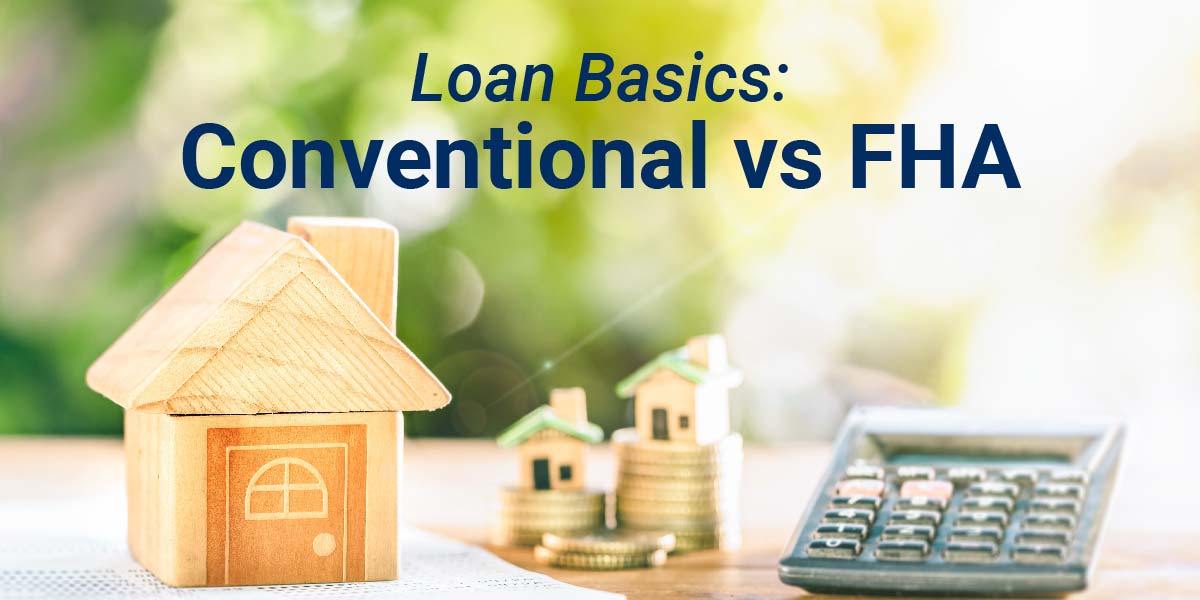What is the difference between a conventional loan and an FHA loan?
The most popular type of mortgage is the 30-year fixed-rate loan. It gives homebuyers three full decades to pay it off, resulting in smaller payments over a more extended period. A 30-year fixed-rate loan is a conventional loan. It offers flexibility and lower interest rates and can require as little as 3% down for first-time homebuyers or 5% down for existing homeowners. FHA loans are popular among first-time homebuyers and those with less-than-stellar credit histories. FHA loans allow a down payment as low as 3.5% if your credit score is 580 or higher. Even with a score in the 500 – 579 range, you can qualify with a 10% down payment. Unlike other loans that require a minimum credit score of 620, FHA loans accept a credit score of 580 for a 3.5% down payment.
Who backs conventional loans vs. FHA loans?
Conventional loans
These are mortgage loans not insured or guaranteed by any government agency. They follow lending standards set by Fannie Mae and Freddie Mac.
FHA loans
Backed by the Federal Housing Administration (FHA) and offered by FHA-approved lenders like Mortgage Equity Partners. FHA loans allow smaller down payments (as low as 3.5%) and lower credit scores than most conventional loans.
What are the pros and cons of conventional loans?
Pros
- Conventional loans offer more flexibility in terms of loan amounts and terms
- Conventional loans offer more flexibility in terms of loan amounts, repayment terms, and property types
- Conventional loans with a down payment of at least 20% avoid the upfront mortgage insurance premium requirement
- Conventional loans do not have the same strict limits on loan amounts as FHA loans
Cons
- Conventional loans typically require a higher credit score (usually 620 or higher)
- Conventional loans typically require a larger down payment (usually 5% to 20% of the home price)
- If your down payment is less than 20%, you must pay Private Mortgage Insurance (PMI) until you reach that threshold
“After my divorce, my credit score was low, and my finances were a mess. My loan officer put me into an FHA loan so I could buy a new home. After a few years, when I had re-established my credit and built up enough equity, I refinanced into a 30-year fixed-rate loan. An FHA loan is a great tool to use when you need it, and I appreciated my loan officer’s expertise in knowing how to use the loan programs.”
-J. Peters
What are the pros and cons of FHA loans?
Pros
- FHA loans are easier to qualify for, even with lower credit scores
- FHA loans have lower down payment requirements (as low as 3.5%)
- FHA loans are insured by the government, providing lenders with more security
Cons
- FHA loans have maximum loan limits based on your buying area
- FHA loans have restrictions on property types (check with your loan officer)
- FHA loans require both upfront and annual mortgage insurance premiums
Private Mortgage Insurance (PMI) is a policy that protects the lender against losses if the borrower defaults on a conventional loan. It is important to discuss PMI as it relates to an FHA Mortgage. PMI benefits the lender that is providing the funding to the homeowner. It pays a portion of the balance due to the mortgage lender if you default on the home loan. If you put down less than 20% when purchasing a home, PMI is typically required. The average annual cost ranges from 0.46% to 1.5% of the loan amount. As with most things, the better your credit, the lower the rate. Usually, you pay for PMI monthly as part of your mortgage payment. The only way to avoid PMI is by making a 20% down payment. Since, the main selling point of FHA loans is the lower down payment option, you can see how PMI is an integral part of an FHA loan. For more information on PMI, check out this recent article.
FHA loans are more accessible for buyers with lower credit scores and allow smaller down payments, while conventional loans offer more flexibility but often require higher credit scores and down payments. Consider your financial situation and goals when choosing between the two options. Remember, the choice between the two depends on your financial situation, credit score, and long-term goals. Consult with one of our experienced loan officers to determine which loan type suits you best!





